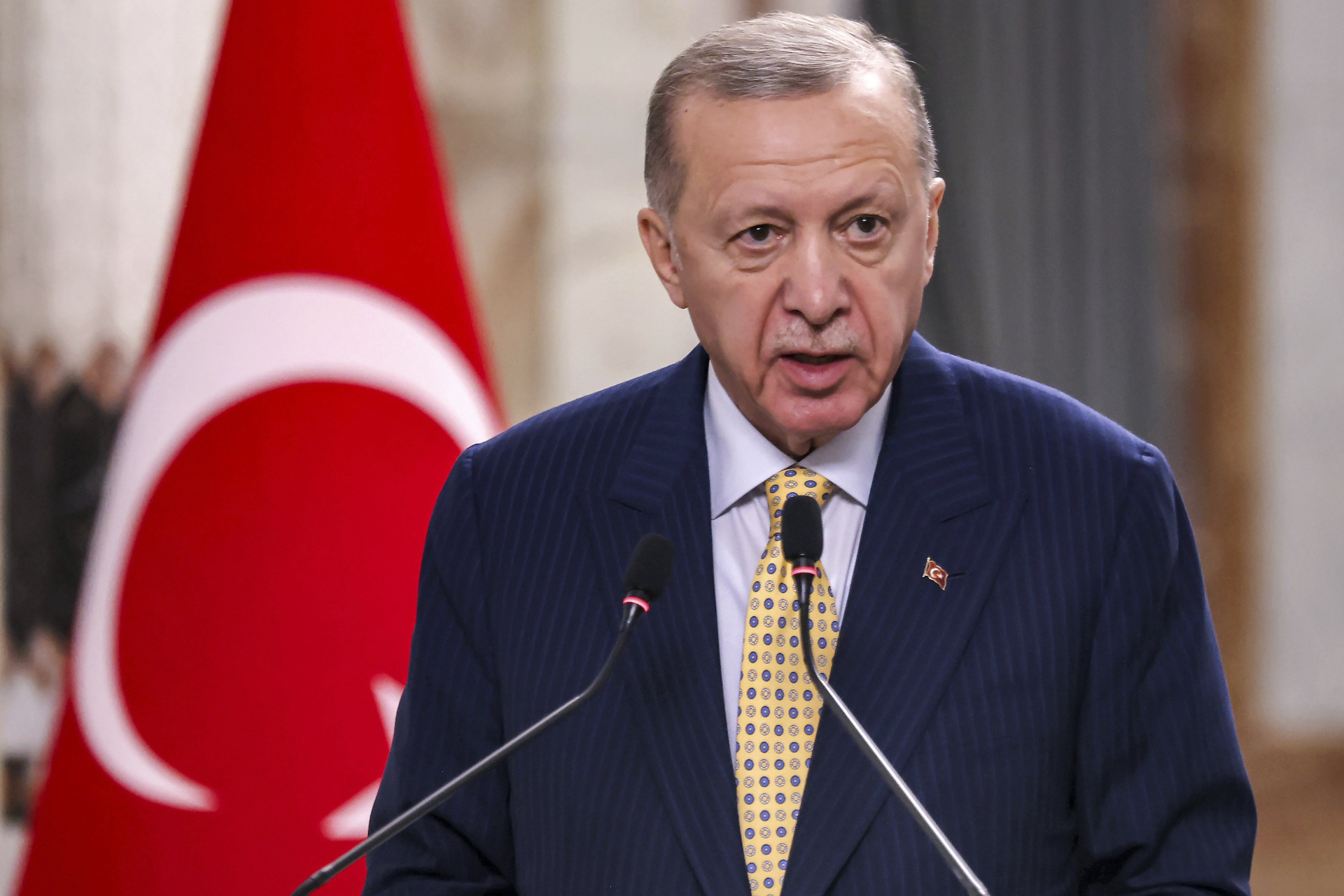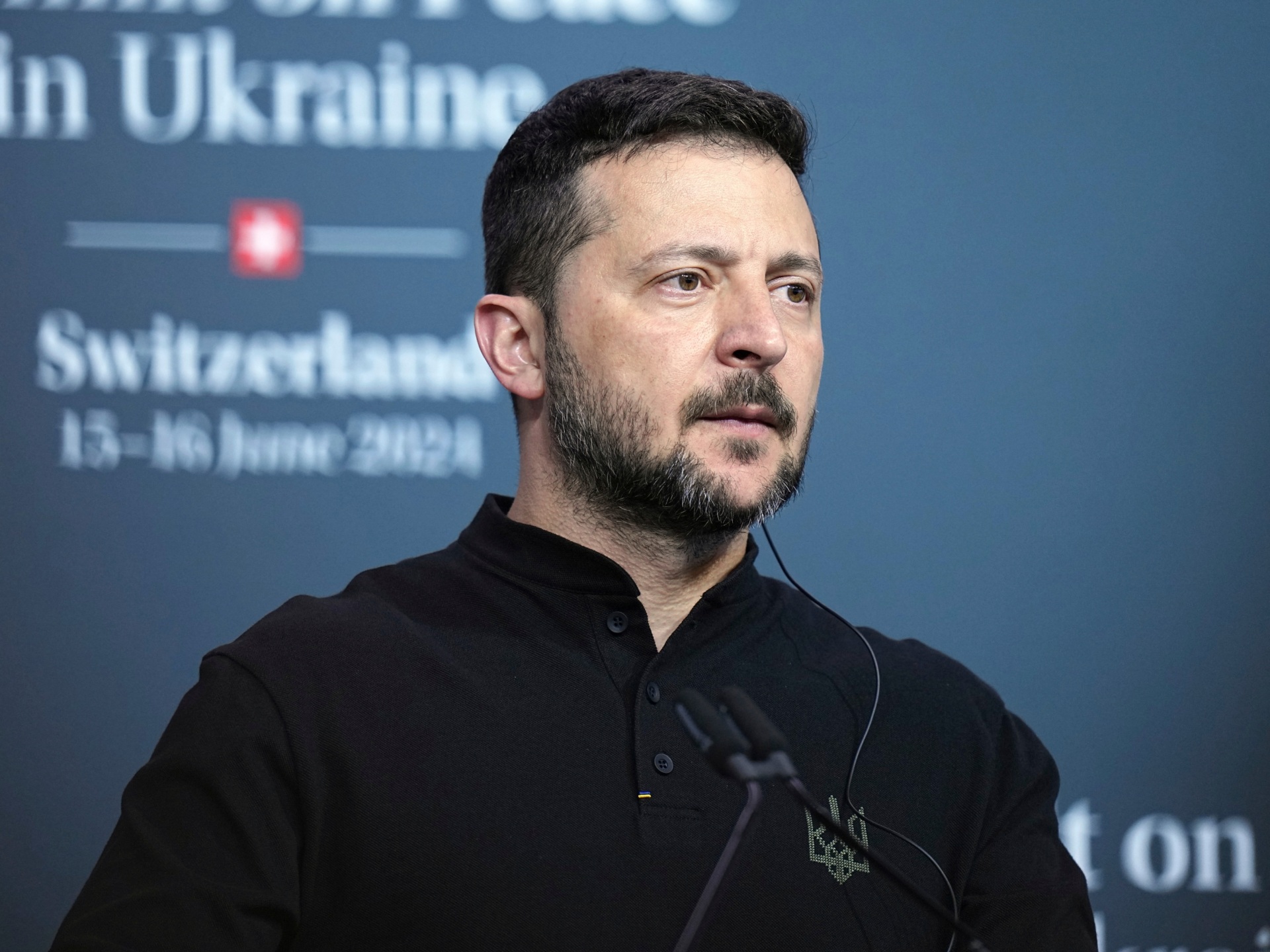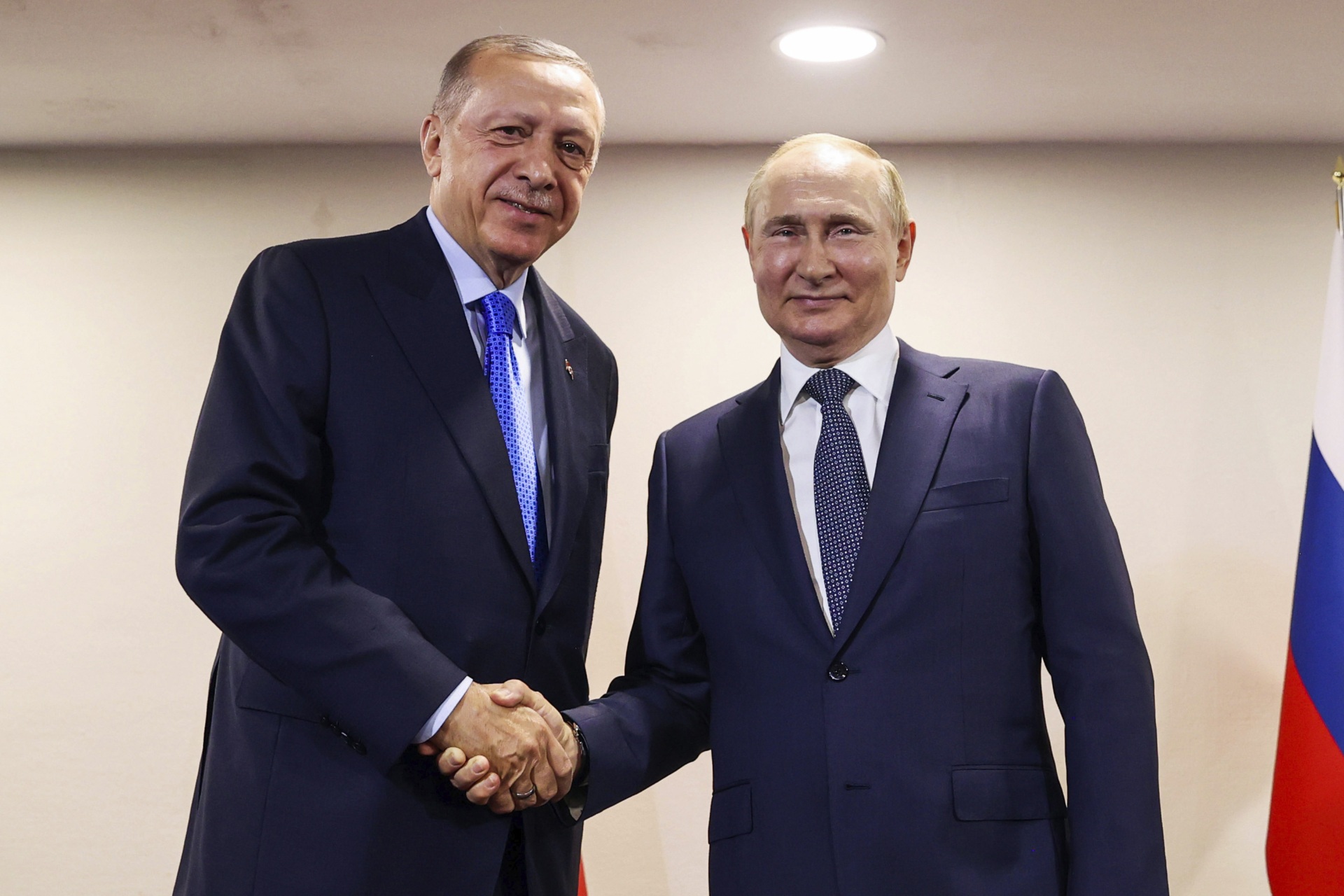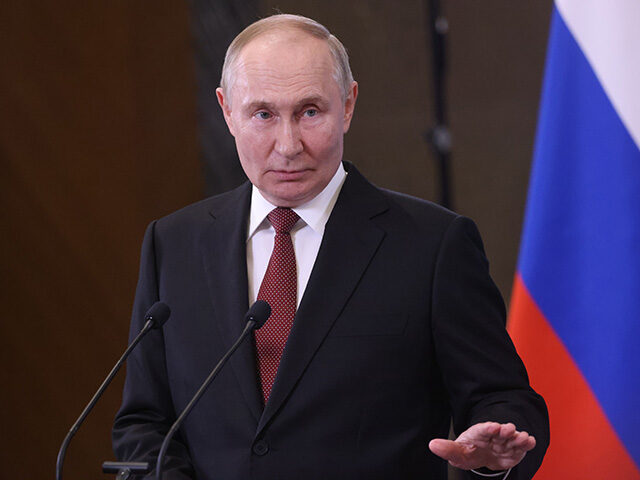The Russian government on Wednesday curtly rejected Turkish President Recep Tayyip Erdogan’s offer to mediate ceasefire talks in the Ukraine war.
According to the Kremlin, Erdogan sidled up to Putin at the Shanghai Cooperation Organization (SCO) summit in Kazakhstan on Wednesday, told the Russian dictator that he thinks peace in Ukraine is possible, and offered himself as mediator. The regime of Russian strongman Vladimir Putin turned him down cold.
WATCH — Tom Cotton: “Putin Only Invades Ukraine When Democrats Are President”:
“No, it’s not possible,” Kremlin spokesman Dmitry Peskov said of Erdogan’s offer to Russian reporters.
Erdogan has been trying to insert himself into the Ukraine conflict for quite some time. In March, he tried to get Ukrainian President Volodymyr Zelensky interested in Turkish-hosted peace talks while Zelensky was visiting Istanbul.
“Since the beginning, we have contributed as much as we could toward ending the war through negotiations. We are also ready to host a peace summit in which Russia will also be included,” Erdogan told reporters, indicating he would also pitch his peace summit idea to Putin.
Zelensky turned Erdogan down, much more politely than Putin would four months later, saying that Ukraine was not interested in any summits with Russia until the Russians agreed to a ten-point plan that included restoring all of Ukraine’s territory and withdrawing all of its troops.

Turkish President Recep Tayyip Erdogan speaks during a joint statement to the media in Baghdad, Iraq, on April 22, 2024. (Ahmad Al-Rubaye /Pool Photo via AP)
Erdogan touts himself as the ideal mediator because he has attempted to maintain good relations with both Russia and Ukraine throughout the crisis. He has called the Russian invasion “unacceptable” but has not condemned it as sharply as Western leaders.
At a February meeting with his cabinet, Erdogan argued that Turkey was an interested party in the conflict because it has maritime borders with both Ukraine and Russia. He invoked a 1936 treaty called the Montreux Convention to keep warships out of the Dardanelles and Bosporus, a move much-desired by Ukraine to keep Russia’s navy at bay.
Erdogan seemed to earn some goodwill from both Moscow and Kyiv, and some international diplomatic credibility, by brokering a deal to export Ukrainian grain in July 2022. Russia refused to renew the agreement when it expired in July 2023, complaining that reciprocal promises to ease Russian food and fertilizer exports were not kept.

Ukraine’s President Volodymyr Zelensky attends a news conference as part of the Ukraine peace summit in Obbürgen, Switzerland, on June 15, 2024. Switzerland is hosting scores of world leaders this weekend to try to map out the first steps toward peace in Ukraine. (AP Photo/Laurent Cipriani)
Trade between Russia and Turkey has grown dramatically over the past few years, although it is beginning to taper off as Turkey complies with Western sanctions. Chinese imports to Turkey actually surpassed those of Russia in April.
Turkey greatly irritated the Russians by insisting on selling its highly effective line of Baykar combat drones to the Ukrainians, who made very good use of them in the early days of the Russian invasion. Baykar broke ground on a new drone factory near Kyiv in February.
Ruslan Suleymanov, a research fellow at Azerbaijan’s ADA University, wrote on Wednesday that Russia and Turkey’s “ever-turbulent relationship” is “on the brink of a new crisis,” as Putin has become increasingly unhappy with Erdogan for trying to get into the European Union, cultivating closer ties with the United States, and continuing to provide those deadly Baykar drones to Ukraine.
WATCH — Maher: Trump Had “Good Moment” When He Noted Russia Didn’t Invade Under Trump, Did Under Biden:
At an economic forum in June, Putin sniffed that Turkey is “cooperating with Ukraine in some spheres” and advised “our friend President Erdogan” to investigate reports of Ukraine using Turkish drones to attack the pipelines that carry Russian gas to Turkey.
Suleymanov suggested Putin is not merely cool to Erdogan’s pushy attempts to become peacemaker in Ukraine, but actively annoyed by his efforts, especially Turkey sending a delegation to a Ukrainian peace summit in Switzerland last month that Moscow dismissed as an “absurd gathering.” Turkey actually signed on to the joint communique produced by the summit, a gesture Putin seems to have taken as a thumb in his eye.

In this photo provided by the Turkish Presidency, Turkish President Recep Tayyip Erdogan, left, shakes hands with Russian President Vladimir Putin during their meeting, in Tehran, Iran, July 19, 2022. (Turkish Presidency via AP)
Putin could also be losing patience with Erdogan because the Russian dictator sees the Turkish autocrat as a lame duck, his ruling AKP party greatly weakened by election losses in March. The Erdogan era might be drawing to a close and the new leader of the Turkish opposition, Ozgur Ozel, is much more Russia-friendly than his predecessor Kemal Kilicdaroglu. The Russians might think building a relationship with Ozel is much more productive at this point than making Recep Tayyip Erdogan happy.
Suleymanov suggested a few gestures from Erdogan that might convince Putin to take him more seriously, including forward movement on a massive gas hub project much desired by Moscow. Turkey frequently talks about how much it loves the gas hub project, but Putin wants to see shovels hitting dirt.
“While it may be too early to write off the Russian-Turkish relationship, the special personal partnership between Putin and Erdoğan is deteriorating rapidly,” Suleymanov concluded, an analysis that would certainly be supported by Putin’s snippy dismissal of Erdogan’s latest bid to become a peacemaker.

COMMENTS
Please let us know if you're having issues with commenting.